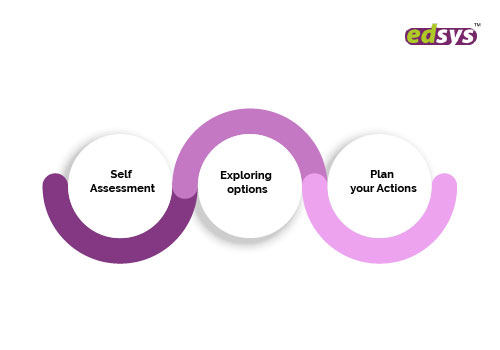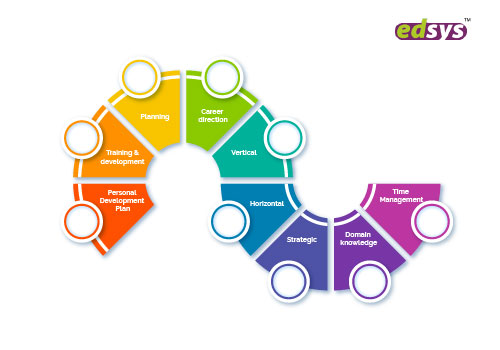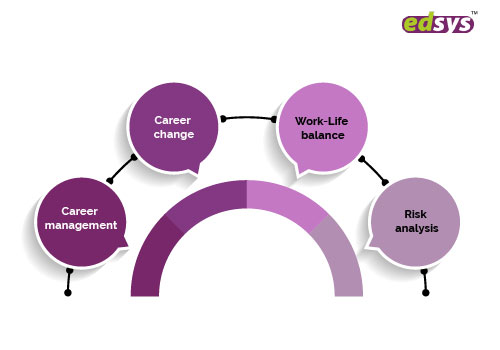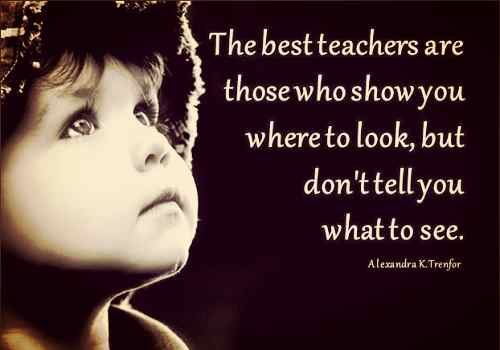Categories(658 Blogs)
Select Category
Watch Right Now
Teacher App - Class
Schedule & Attendance Management App
Parent App from Edsys

Best School Bus Tracking System

Cashless School - For Smart Schools of Tomorrow


Career Development: Stages, Importance, Strategies and Types

Career development is a continual process that can bring optimal results with efficient management of one’s own time and resources. The development process involves a thorough understanding of various aspects of work and life and the ways to balance both.
Self-development plays a major role in career development.
Some of the primary aspects we need to focus on for proper self-development are:
- Values: Assessing one’s values will help to choose a career that aligns with those values. This step will create a deep interest in the work you do and generates job satisfaction.
- Interests: Find out the things that capture your attention, focus, and motivation. They could be things that you may or may not like. Finding opportunities with similar interests will help in maximizing your potential.
- Personality: Self-reflect and identify your qualities as an individual. Are you a team player, socially extrovert or introvert, answers to these questions will help in narrowing down the options that are best suited for your personality. The negative side to your personality should also be paid heed, too and should be worked on to achieve success at work.
- Skills: The skills you acquire will determine the progress in your career. Learning new skills, reskilling or upskilling, and gaining acumen on existing skills will significantly improve one’s career trajectory.
Various Stages involved in Career Development

1) Self Assessment
A self-evaluation can help to gather information on your strengths, weaknesses, and potential areas for growth. This information is vital for the proper mapping of a career plan.
2) Exploring Options
This step helps in narrowing down career options as per industry trends, educational qualifications, work environment, etc. It is important to consider the data gathered during self-assessment while exploring your options.
3) Plan your Actions
Once you have decided on career options, set a goal. After setting your goal, plan the process of action on attaining the goal. The process must include prioritizing tasks, action planning, and reality testing.
4) Find you’re at the Right Job
This step primarily deals with marketing your talent using various tools and job networking modes. With the information gathered during the first three steps, you can create a personal brand, which is the most effective strategy in gathering the attention of recruiters. You can also opt for social and online networking, applications on job portals, etc.
Strategies for Career Development

Listed below are a few effective strategies that can help with career development.
1) Personal Development Plan
It helps in improving and refining one’s capabilities, knowledge, and goals. It helps in enhancing performance, efficiency, and overall satisfaction of work and life. SWOT analysis is the primary technique used for this process.
2) Planning
Proper planning helps in deciding the end goal and the strategies to attain such a goal. One of the key aspects of career planning involves breaking the plan down into fine-tuned objectives, which can be grouped in the form of projects, marketing, communication, job search, etc.
Also Read: 15 Top Tech Skills in Demand in 2020
3) Career Direction
This step plays an important role in crafting of one’s present and future goals. There are several types of career directions.
4) Vertical
The hierarchical climb in an organization
5) Horizontal
Moving from one sector to another for the purpose of job growth, salary, versatile experience, etc.
6) Strategic
Trying various job roles to figure out the eventual best-suited job role organization.
7) Domain Knowledge
Gaining acumen in a specific sector or profession.
8) Time Management
With the advent of modern technology and the rapid pace in advancement, time management plays a crucial role in career development. Proper time management can relieve stress and help to create the ideal balance between work and life. Here are some of the techniques used for efficient time management.
- Attention span: Assess the amount of time one could focus on a task
- To-Do list- Create a list of tasks that needs to be completed
- Discipline- Develop the ability to concentrate on any task
- Efficiency- Reduce wasting time and other resources
- Timeboxing- Set a time limit to complete a planned task
9) Training and Development
This process involves gaining skills, acumen, and knowledge of particular interest.
Types of Career Development

1) Career Management
The following tools aid in efficient career management.
- Career Goals: A well-defined goal or a fundamental objective that all the above-listed processes eventually lead towards attaining.
- Goal planning: The process of goal planning is crucial for achieving the end goals. Some of the examples for effective goal planning include creating goal list, determining strategy, risk prioritization, etc.
- Objectives: These are tasks that need to be achieved to reach an end goal.
- Failing upwards: The concept of failing upwards relates to having a positive outlook on failures. It also encourages one to see failures as a stepping stone for a better career by having open discussions about shortcomings and learning from new experiences. The following are various aspects of failing upwards.
- Counter Signaling: Open-minded conversation about one’s failures
- Bias for Action: The process of taking risks without over-analyzing. This has a tendency for a lot of failures
- Innovation: Failures in an innovative enterprise provide a lot of learning and experience
Also Read: Teacher Interview Questions (30+ Questions and Answers)
2) Career change
An understanding of the following factors can simplify the process of a career change.
- Career goals: These are long term goals that define an individual’s ambition
- Quality of life: The wellbeing of the individual with regards to health, food, shelter, community, education, happiness, the standard of living, safety, culture, etc.
3) Work-Life Balance
The satisfaction obtained from both work and personal life. A good work-life balance means an understanding of objectives, managing expectations, time management, productivity, and work-life integration
4) Risk Analysis
It involves the application of risk assessment and possible remedies. Some of the common techniques used for risk management include analyzing risk capacity, risk estimate, risk exposure, etc.
Conclusion
Like said before, Career development is a constant process and what you need to do is enhance your abilities and skills so as to thrive in your respective career. Proper planning and strategies for the same may help you achieve the success you wish for.
Recent Blogs
Our Educational Services
Popular Blogs
Subscribe

SUBSCRIBE TO OUR NEWSLETTER
Sign Up and Recieve the Latest News
Don’t Worry, We Don’t SpamExplore Our Extensive Researched Educational App Directory
Visit Now
















